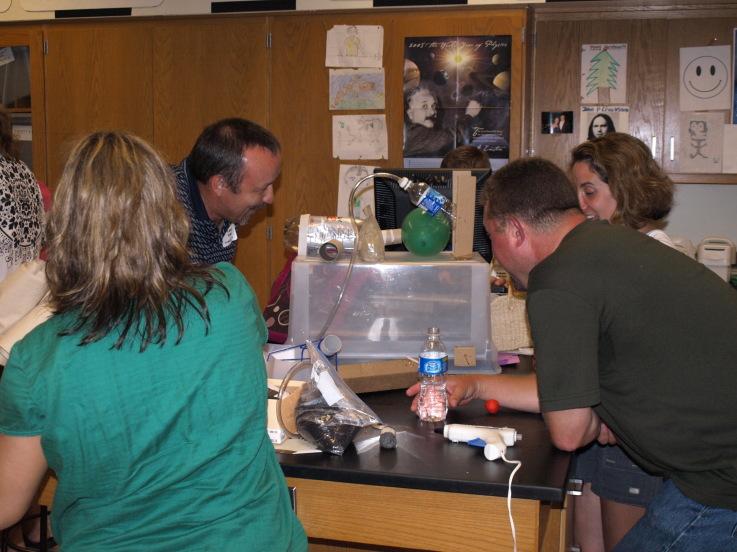Professional development for science teachers
By Mary Bigelow
Posted on 2013-07-19
 With budget issues facing many of the schools I’ve worked with, district-sponsored professional development (PD) has been scaled back. But teachers have a professional obligation to stay current with new findings about student learning, teaching strategies, technology applications, and initiatives such as the Next Generation Science Standards (NGSS). Science teachers also need to keep up with subject area content and topics in lab safety.
With budget issues facing many of the schools I’ve worked with, district-sponsored professional development (PD) has been scaled back. But teachers have a professional obligation to stay current with new findings about student learning, teaching strategies, technology applications, and initiatives such as the Next Generation Science Standards (NGSS). Science teachers also need to keep up with subject area content and topics in lab safety.
Most of us would not mourn the loss of large group presentations on topics that do not meet our needs as science teachers. NSTA blogs have addressed the idea of individualized PD designed by individual teachers or groups of teachers as a meaningful (and cost-effective) alternative to traditional programs:
- The difference between PD and teacher training “I just sat through another full day of ‘professional development.’ As a middle school science teacher, I’m interested in many topics related to my subject, but this day was a series of generic presentations to the entire faculty. I kept thinking about better ways to use my time.”
- The need for individualized PD “The middle school where I teach just changed the topics taught each year to align with our state standards. My specialty is biology/life science, but now I’m also expected to address topics in earth and physical science. The in-service agenda for this year focuses on teaching strategies, but what I really need are crash courses in earth and physical science. I can’t go back to college—what should I do?”
- How to get PD on a shoestring “We were informed that our district professional development budget will be drastically reduced for next year. Each department is asked for input on how to provide professional development on a shoestring. Any suggestions for our science department?”
- Incorporating teacher book groups “Some of my colleagues in the science department and I would like to start a book group, but we’re not sure how to get started. What books should we read? How often should we meet? Any other suggestions?”
- Personalized PD at all levels “I am part of a team of elementary teachers (pre-K through fifth grade). Where can we find professional development (PD) in Earth sciences?”
- Iron Science Teacher “As part of a three-year PD project for elementary and middle school science teachers, the directors and coaches wanted to have a culminating activity to demonstrate what the teachers had learned. In addition to the questionnaires and surveys, they decided to do a local version of The Iron Science Teacher. I was invited to be one of the judges. Here’s how it worked.”
- Online PD http://nstacommunities.org/blog/2013/02/18/online-pd-courses/ “I’m looking for PD opportunities. I have a master’s degree, but as part of my PD plan, I’d like to earn additional graduate credits. In my current situation, commuting in the evenings or on weekends to a university is not possible. I’m thinking of trying an online course for the first time. What do I need to know or think about?”
- From NSTA Press: What are best practices in professional development?
If you’re interested in starting your own IPDP (Individualized Professional Development Plan), you can use the resources of the NSTA Learning Center. You’ll find tools to help you identify your content needs, design a plan, assemble a portfolio, reflect on your learning, and create a report.
Photo: MLB
Disclaimer: The views expressed in this blog post are those of the author(s) and do not necessarily reflect the official position of the National Science Teaching Association (NSTA).


